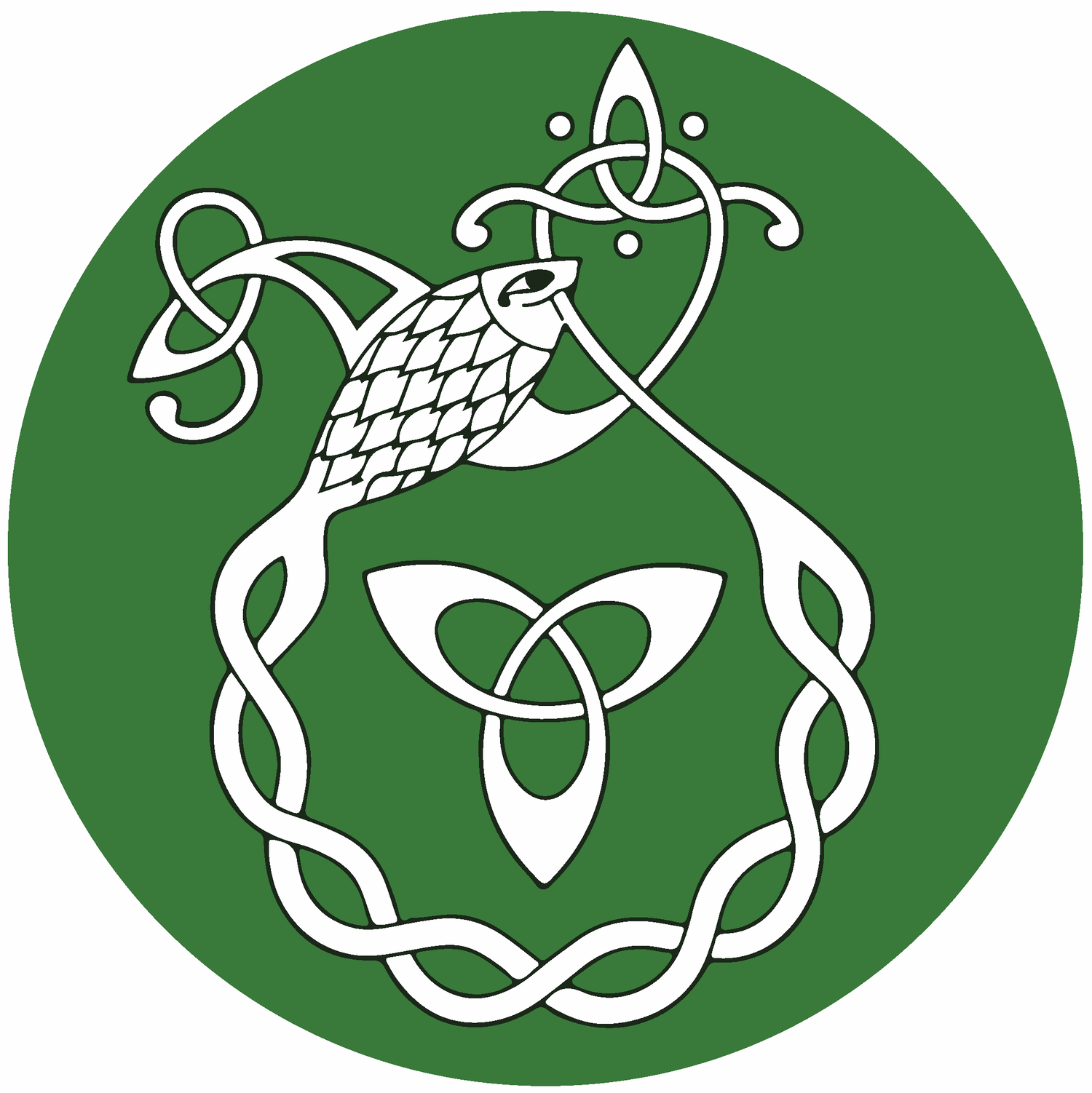Nó Nuair, a Chlann Chonaill (1860)
Collected by Tomás Ua Baíghell in South Gloucester, Ontario
Father Tomás Ua Baíghell was not only a devoted priest but also a poet with a deep appreciation for Irish literature and culture. His contributions to the preservation of Ontario’s Irish poetry are noteworthy, through his own frequent submissions to American newspapers. He also contributed by collecting compositions from another local poet in his parish south of Ottawa. Father Ua Baíghell recognized the value of these songs and sent them in for publication to the Irish-American newspaper, writing:
“These stanzas, together with an original air, have been composed by a genius, an exile of Erin, residing in this part of the world. I have reduced his effusion to writing, and attempted an English version, for which , should you think the original worthy of publication, you could, perhaps, find a substitute.”
Interestingly, the editors raised the possibility that Father Ua Baíghell might have been the actual author of these compositions. They noticed similarities in style and thematic elements between these poems and Father Ua Baíghell's own work, such as the use of mythological references. However, his reputation as a devout priest and his dedication to preserving Irish culture make it equally likely that he was acting with honesty and integrity in his efforts to share these poems with a wider audience. In either case, it is clear that Thomás did not want to be named author of this piece.
The poem begins with a quote from Annala Ríocht Éireann (the Annals of the Kingdom of Ireland), 1600:
“Mo nuair ain, nach d’aein leith ro fersat an laechraidh sin Cineoil Chonaill a m-baraind frí a m-bidhbadhaib, agus nach i g-córa batar ; uain ní ro cumsecaighte an ceín battar samlaidh, agus ní ro h-indarbtha, agus ní ro toifniti as a b-foirb n-dílis, amail do ronta, cidh iarttain.”
Ua Baíghell noted this was sung to an air, but what that air was is no longer known.
Nó nuair, a chlann Chonaill, nár d’aon leith bhur mbarainn
A rí-ghabhla Fódhla, do threascradh na Gaill
Faoi dheasca slua Sacsan, ní bheadh ár gcuid fearainn
Ná Gaeil uile sáraithe, ruaigthe le feall
An maidhne garbh sléibhe, do scuabadh allúraigh
Faraor! Trína céile, do thit sé le fán!
Is d’fhág sliocht na féile gan dóchas ath-éirí
Ar seachrán, ‘s i ngéarbhroid, go maol, folamh, bán!
Or when, oh descendants of Conall, was your fate not united
Oh kingly land of Ireland, laid low by the foreigners
Under the dregs of the Saxons hoard, would not our lands be
Nor all the Gaels violated, chased out by deceit
The rough untended land, swept by foreigners
Alas! In confusion, it fell to vagrancy
And the people of generosity were left without hope to rise again
Astray, and in dire distress, thin, empty, pale
A chnoic aoibhinn Almhaine, Fhinn, is na Féinne
Nach cuimhin leats’ a gcomhbhá, a bhfírinn’, ‘s a bhfeidhm
Lena linn sin, fonn Eilce, ba sámhbhualadh gréine
Ba lántorthach, lónmhar gan easpa, gan teidhm
Ach d’éalaigh gart Gael, d’imigh gléire ‘na míle,
Nach trua sinn gan tréanfhear, nach bocht sinn, nach táir
Mar ruschoill ‘na síneadh an t-anfa gach bile
‘Nár mbruscar lag lúbtha, fann, briste, faoi lár
Oh beautiful hill of Almhaine of Fionn and the Fenians
Don’t you remember their fellowship, their truth, their duty,
During that time the land of Ireland was under the gentle rays of the sun
Was entirely fruitful, full without want, without affliction
But the generosity of the Gaels withdrew, the best departed in their thousands,
Aren’t we pitiable without heroes, aren’t we poor, aren’t we wretched
As a wooded promontory, every sacred tree flattened by a storm tempest
As a fragmented rabble, weak, stooped, limp, broken, oppressed
Nach díomhaoin gach lóchrann a threoraigh an bealach
Is síorchogar Gaelach ag múchadh gach logha!
Och! Is dilleach le gaoith, och! Is slán-íce ‘ bhfolach
Do truaillíodh Éire, meabhal, mioscais is gó
Cé ndeachaidh ‘n mór-alltacht, a bheartaigh clann Dhomhnaill
Do shlua bodach Gallda, ba fuascar, ba scaoll
Och! a ghlanshruith chlann Míle, nach tuirseach an ró-mhoill
Gan laoch bhainfeadh arís, tine chreas’ as a béal
Isn’t it worthless each guiding light that marks the path
And the perpetual Gaelic war extinguishing every concession
Alas! As leaves on the wind, alas! And salvation hidden
Ireland was defiled, disgrace, hatred and deceit
Where did the great wildness go, that the descendants of Domhnall planned
For the unmannered hoard of English, that would cause a stampede, a panic
Alas! oh, clear descendants of Míl, isn’t it weary the extreme hindrance
Without a warrior that would again agitate, sparks from her mouth
Alas! Oh, loyal heart-companions and oh, pleasing people of Ireland
From heavy slumber, which led you astray, awaken soon
Bountiful as a tidal wave, coursing through the house of Donn
Your on-rushing attack would fiercely shatter the harsh yoke of oppression
Welcoming beautifully, the old reign of its children
The Sunburst-flag will shine, as it did for the Fenians
And a Gaelic voice rousing sweet echoes in the glen
Och! a chroí-chumainn dílse ‘s a shliocht bámhar Fódhla
Ó Tairchim trom, shaobhaigh sibh, músclaígí go luath
Mar mhuirbhrúcht go duaiseach, trí theach nDoinn ag seoladh
Lonn-réabfadh bhur ruathar an cuing cnáidech crua
Ag fáiltiú go bláfar, seanréimeas a clann
Beidh Scal-gréine ag taithniú, mar bhíodh ag na Fianna
Is glór Gaeilge dúiseacht binn-allabhair ‘a ghleann!
For citation, please use: Unknown. 1860. “Nó Nuair, a Chlann Chonaill” Ó Dubhghaill, Dónall. 2024. Na Gaeil san Áit Ró-Fhuar. Gaeltacht an Oileáin Úir: www.gaeilge.ca
Adapted from: The Irish American. 1860 (19 May). New York: Lynch, Cole & Co. See the original here.
This poem was very nearly lost and a single photo copy of this newspaper issue now exists. It was located, after significant searching, only due to the invaluable doctoral thesis: Knight, Matthew Thomas. 2021. “"Our Gaelic Department": The Irish-Language Column in the New York Irish-American, 1857-1896”. Dissertation. Harvard University Graduate School of Arts and Sciences.

